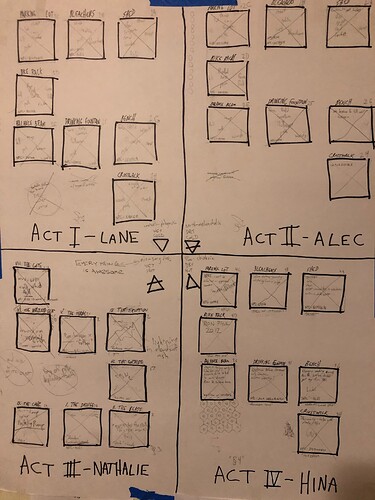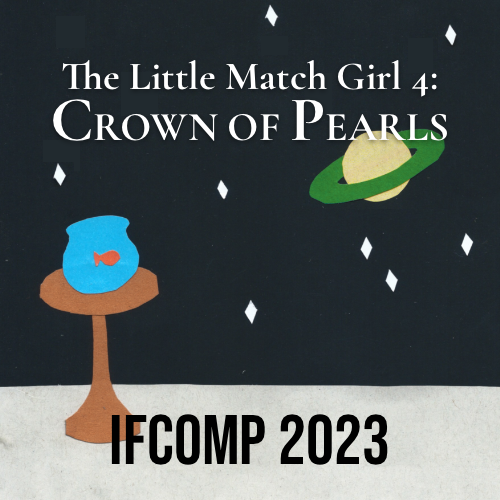I don’t know if my mental health is perfect, so I might not be qualified to answer. But I won’t pass up an opportunity to talk about myself.
I’m blessed with a comfortable life and supportive friends and family.
I used to pay attention to politics and current events, but I noticed that was making my life worse, so I stopped.
open for questionably applicable internet usage strategies
I try hard to make social media “serve me,” if that makes sense. I only use it in ways that bring me useful or pleasant content. If I politely followed all my friends, I’d get a bunch of feeds full of my friends complaining about things and their retweets of other people complaining about things. So I only follow people whom I can trust not to perpetrate negativity. Mostly artists. And I don’t use a service if it insists on showing me content that I didn’t ask to be shown!
I don’t think of web forums or stuff like Reddit as “social media” per se, but I pursue basically the same policies. I don’t get involved in arguments; I try not to read arguments, or even material on topics that I would want to get in an argument about (because then I just get in an argument in my head and my blood pressure goes up regardless). I don’t look at stuff that’s just going to make me feel worse. And I ignore a lot of other stuff, not because it’s bad, but because it doesn’t interest me!
I use this comment blocking extension for Chrome.
[end of digression]
I work on things that make me happy. Any creative work has the potential to become frustrating, but I try not to pursue projects that are going to make me miserable. Actually, I think this point might yield some concrete bits of advice:
- I try to recognize ideas that excite me, and not let them get away from me. When some notion strikes me as particularly fun (or funny), I write it down, and I focus on it, and I try to nurture it into something I can make. My work makes me happy when it arises out of that excitement.
- Contrarily, I find that work that comes from other impulses does not make me happy. When I’m feeling unproductive and depressed, and I feel like making something will make me feel better, I end up working on something that I soon (or eventually) realize is lousy. And it’s not surprising, because the work was born out of desperation rather than inspiration.
2a. I haven’t found it to be helpful or healthy to work on something for the sake of working with someone else. When the initial motivation is “we should make something together!” it’s easy to rush into pursuing an idea that you later discover you don’t have a lot of enthusiasm for. It’s better to say “we should make something together, when the right project comes along!” - THIS ONE IS IMPORTANT. NEW PARAGRAPH.
I cited this earlier as “the first habit of highly effective people.” I just checked, and apparently it’s the second habit of highly effective people. I don’t care: If you’re asking me, then this is the first eight or ten habits of highly effective people: “Begin with the end in mind.” Plan everything as much as you can before you start working.
If I’m writing a game, and I get to a part where I don’t know what I need to write, that is called “writer’s block,” and it sucks. It causes the creative process to become sucky. But I can minimize how often this happens if I have a detailed plan before I start writing. If the design is in place, the implementation happens smoothly.
(Sometimes, when I’m designing a game, I get to a part where I don’t know what I need to design. We can call this “designer’s block” and I don’t know what to do about it.)
A strong design also lets me know how much work a project will take, and how far along I am, and that’s incredibly important for my personal morale. For my larger games, I like to make a big poster (I call it “the big board”) to hang over my desk with a map of the game on it. I X out or color in each room as I implement it. It’s so satisfying, and I know exactly how much I’ve done, and what’s left, and what I should do next!
Okay, fine, here’s the big board for A Rope of Chalk:
About visualizations and diagrams (I feel like I explained this in another answer...):
The big board is usually the fourth or fifth visualization of a game I draw up, after sketching it in my notebook several times. Some people disapprove of meticulous planning, and they’ll tell you to stop drawing your little diagrams and just start writing. I think this philosophy derives from the traditions of linear media (and even there I question its efficacy) but in game development it is just dumb. Games have multiple levels of internal logic that all need to work out, and the angles that aren’t worked out before you start writing will torture you mercilessly as you attempt to work them out while you’re trying to write.
I guess I’m not exactly addressing the mental health angle. Let me clarify:
- The design process itself is, or should be, a source of joy, so we should prolong it for as long as we can derive joy from it.
- Detailed design preserves us from miseries in the production process, such as that of writer’s block, and that of having to rewrite a bunch of code to support a system that we didn’t realize we needed until we were almost done with the game.
- Detailed design also provides the production process with context that assists in maintaining motivation, especially when the context is visualized as fun diagrams or maps.
I’ve heard some artists talk about how finishing a project feels very good, but doing the actual work is painful. I guess it’s fortunate that I’ve picked media to work in for which doing the work can be very fun. And I’ve developed methods for making the work more fun.
Thank you for your question. I’m sorry if my answer was mostly rehashing older answers.

